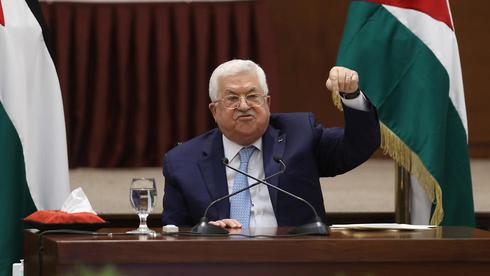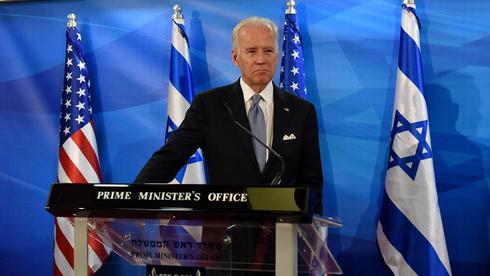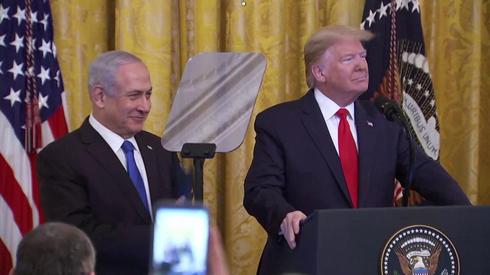Abbas is playing poker without any cards
It is easy to mock Palestinian President Mahmoud Abbas, who has once again proven the one thing in which he excels is simply existing day after day without leaving any sort of mark.
The truth is that Abbas is playing poker without any cards, for the Palestinians have no way of harming Israel without inflicting a devastating blow on themselves in the process.
Abbas might be living in a bubble, but his fellow Palestinian leaders (average age, 78) do understand that somethings just won’t fly.
They were the ones who advised Abbas to wait. Israel’s government would surely change, the argued. The Americans are speaking with two differing voices, Jordan is doing its job and maybe the annexation plan will simply disappear.
But on the other side are radical voices calling for Abbas to announce the dissolution of the Palestinian Authority and to specify the steps to ensure the termination of security coordination with Israel.
"Do you plan to stop the arrests of Hamas personnel?" they asked him. "Do you intend to halt intelligence sharing?"
Abbas, who expected to simply announce his decision to unanimous support, was most upset at the opposition to his plan.
He told one of his colleagues from the Democratic Front for the Liberation of Palestine: "Why don't you tell us who you really work for, apparently you're an agent." Another he simply told to shut up.
Crucially, even when facing such a momentous move as Israel's annexation of parts of the West Bank, the Palestinians continue to be divided, exhausted, weak and unable to rally.
Ending security coordination will take its toll on IDF activity in the West Bank, granted, but that will not scupper the annexation.
There are three significant factors that could turn the idea of annexation from an opportunity for Israel into an atomic headache that just isn't worth it:
The election of Joe Biden as U.S. president, significant damage to the peace agreement with Jordan, and European sanctions.
The most important factor - as always - is the U.S.
If Biden wins November's presidential election, the last thing Israel needs is to tarnish its relationship with the new administration by picking a fight over the Palestinians.
The most crucial issue will most likely be the Iranian nuclear threat. Any distractions or public disputes could spell disaster for that mission.
On the other hand, if President Donald Trump survives the catastrophic handling of the coronavirus outbreak and actually manages to get himself re-elected, the annexation process could continue as planned with muted reaction from the Arab world.
And while Prime Minister Benjamin Netanyahu has insisted that the annexation process can begin in July, the right thing to do would be wait until November.
Another noteworthy point is Saudi Arabia and Egypt's silence on the matter. The Saudis have made it a point to refrain from engaging in public disputes with both Israel and the U.S. (which in itself is pretty unbelievable). If they do have something to say, they will say it quietly, and closed doors in Washington DC.
Meanwhile, the Jordanians are bending over backwards to set up diplomatic meetings that would end with a joint message of condemnation of annexation. But no one is taking their calls, not in Riyadh and not in Cairo.
from Poker



Post a Comment